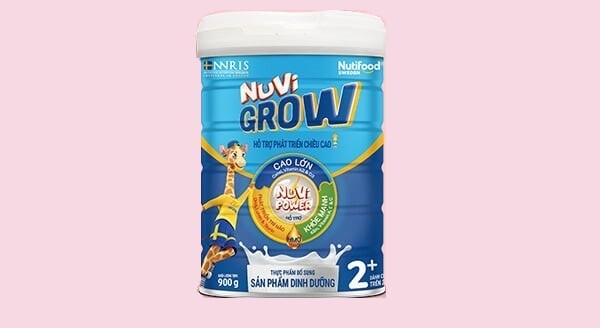There are 5 things parents should do to help their children reach the top of the class after summer.

Nutrition plays an extremely important role in a child’s height development. A balanced diet will provide the necessary micro-nutrients for bone and muscle development.
Establish healthy eating habits for children from an early age to lay the foundation for height development.
Parents should ensure that their children get enough protein from food sources such as meat, fish, eggs, and beans. Protein is the main component of cells and tissues, especially important during the rapid growth stage. In addition to protein, calcium from milk and dairy products is also essential for building strong bones. Calcium not only helps bones grow but also prevents bone-related problems in the future.
Note that, in addition to calcium, parents need to supplement their children with vitamin D3 and vitamin K2 to support maximum calcium absorption for height growth. Vitamin D3 helps the body absorb calcium more efficiently, while vitamin K2 plays an important role in regulating calcium in the body, helping calcium to be deposited in the bones instead of accumulating in soft tissues.
In addition, green vegetables and fruits are also important as they provide the necessary vitamins and minerals for development. Dark green leafy vegetables such as spinach, kale, or broccoli are a source of vitamin K, folate, and iron. Fruits such as oranges, kiwis, and strawberries are rich in vitamin C and antioxidants, which help boost the immune system and support height development.

Establish healthy eating habits for children from an early age to lay the foundation for better height development. A balanced meal should not only include the necessary food groups but also be presented in an appealing way to make it interesting for children. Parents can experiment with different cooking methods, from stir-frying to steaming and soups, to ensure that children don’t get bored.

Physical activity helps children maintain their health and stimulates height development. Spending at least 1 hour every day on outdoor activities such as running, jumping, playing sports, swimming, or cycling helps children develop strong muscles and bones.
When children engage in physical activities, they not only burn energy but also stimulate blood circulation, helping the body absorb nutrients from food more effectively. These activities also contribute to the development of the immune system, helping children fight off diseases more efficiently.
Sports such as basketball and badminton are especially beneficial for height development as they require children to jump and stretch their bodies. These movements not only help stimulate bone growth but also create positive pressure on the bones, encouraging the development of strong bones. Moreover, participating in team sports teaches children the value of cooperation, sportsmanship, and communication skills.
On the other hand, exposure to sunlight also helps children synthesize vitamin D, which is necessary for bone development. Vitamin D helps the body absorb calcium from food and plays a crucial role in building and maintaining bone health. Especially during the winter months or when children spend less time outdoors, vitamin D supplementation through food or supplements may become necessary.

Sleep plays an extremely important role in a child’s development. Going to bed early helps children have enough time to rest and recharge for the next day. Parents should set a bedtime for their children before 10 pm to ensure they get 7-9 hours of sleep every night.
Sufficient and deep sleep not only helps children feel refreshed but also improves memory and learning abilities. Parents can establish bedtime routines, such as reading books or practicing meditation, to help children fall asleep more easily.


Teaching children the correct standing and sitting postures is important for protecting their spine health and supporting height development.
When children are sitting for studying or using electronic devices, remind them to keep their backs straight, shoulders relaxed, and head aligned with the spine. This helps reduce pressure on the spine and muscles, thereby reducing the risk of back and neck pain. Parents can create a comfortable learning environment with appropriately sized furniture to make it easier for children to maintain the correct posture.
Additionally, encourage children to change their posture and get up and move around after every 30-45 minutes of studying. This not only improves blood circulation but also reduces fatigue. Light stretching exercises can also be done between study sessions to help relax the child’s body and improve flexibility.

Water is crucial for a child’s overall development. Ensuring that children drink enough water every day not only helps the body function efficiently but also supports various physiological functions, such as temperature regulation, joint lubrication, and maintaining skin moisture.
When the body is well-hydrated, metabolism improves, and the absorption of nutrients is enhanced. This is especially important during the growth stage when children need more nutrients to support bone and muscle development.
Water also helps blood circulation, delivering oxygen and nutrients to the cells in the body, thereby promoting overall development.
|
Nuvi Grow with the Nuvi Power formula contains the golden trio of nutrients: Calcium, Vitamin K2, and D3, researched by the Nutifood Sweden Nutrition Research Institute – NNRIS, to help activate and optimize children’s potential for height and intelligence: Calcium strengthens bones; Vitamin D3 helps absorb calcium from food into the blood; Vitamin K2 directs Calcium into the bones. Nuvi Grow also contains DHA, Lutein, and Taurine to support brain development and enhance memory and learning abilities. With 3 glasses of Nuvi Grow every day, children can confidently grow taller and smarter.
|







































